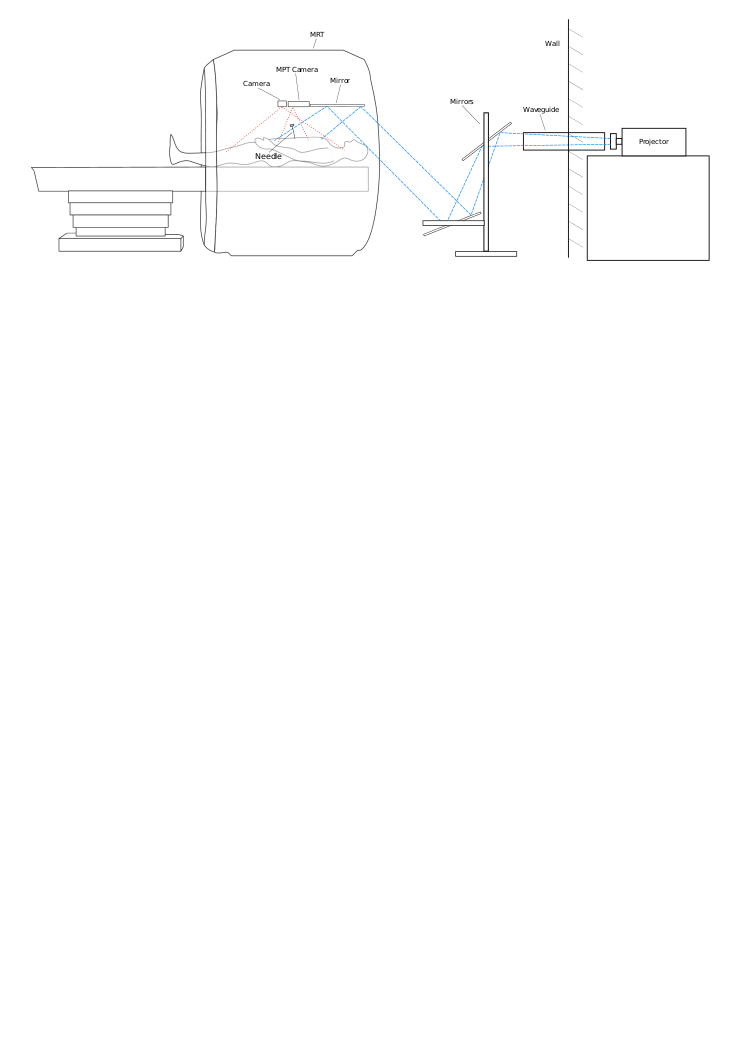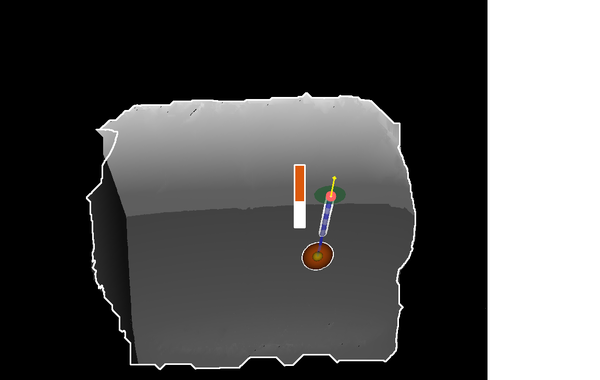Difference between revisions of "Project Week 25/Improving Depth Perception in Interventional Augmented Reality Visualization/Sonification"
From NAMIC Wiki
| (3 intermediate revisions by 2 users not shown) | |||
| Line 31: | Line 31: | ||
* Started to implement head tracking -> need some different hardware | * Started to implement head tracking -> need some different hardware | ||
* Next steps will further focus on head tracking and fusion with sonification | * Next steps will further focus on head tracking and fusion with sonification | ||
| + | |} | ||
| + | [[File:System setup.svg|frame|left]] | ||
| + | |||
| + | {| | ||
| + | |[[image:Depth Cues for projective AR Needle Navigation.png|left|600px]] | ||
| + | |- | ||
| + | |Depth Cues for projective AR Needle Navigation | ||
|} | |} | ||
Latest revision as of 12:06, 30 June 2017
Home < Project Week 25 < Improving Depth Perception in Interventional Augmented Reality Visualization < Sonification
Back to Projects List
Key Investigators
- Simon Drouin (NeuroImaging and Surgical Technologies (NIST) Lab, Canada)
- David Black (University of Bremen; Fraunhofer Institute for Medical Image Computing MEVIS, Bremen, Germany)
- Christian Hansen (University of Magdeburg, Germany)
- Florian Heinrich (University of Magdeburg, Germany)
- André Mewes (University of Magdeburg, Germany)
Project Description
| Objective | Approach and Plan | Progress and Next Steps |
|---|---|---|
|
|
|
| Depth Cues for projective AR Needle Navigation |

